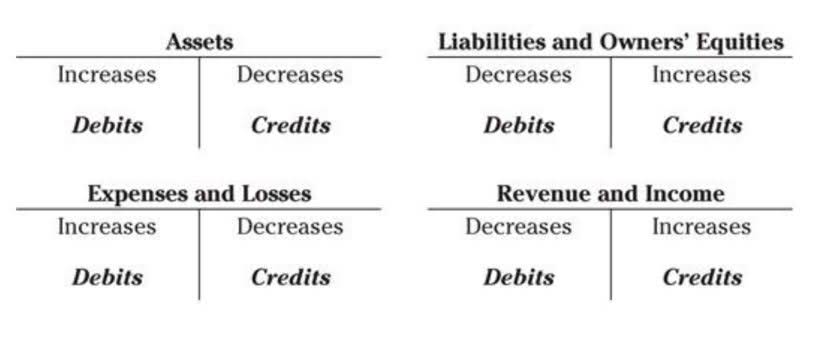It is characterized by detailed guidelines that ensure rigorous compliance and comprehensive reporting. GAAP’s specificity helps reduce ambiguity, providing clarity and consistency in financial disclosures. While this approach can sometimes lead to complexity, its detailed nature ensures that all aspects of financial transactions are thoroughly documented and reported. IFRS is adopted by over 120 countries, providing a universal approach to financial reporting. It emphasizes transparency and comparability, allowing investors and analysts to evaluate companies on a level playing field.
Accounting Department
Together, these statements offer a comprehensive picture of a company’s operational efficiency and profitability. Financial reporting and analysis give insights into the financial performance of a business. Common types of financial reports include the balance sheet, income statement, and statement of cash flow. Understanding the details of financial statement analysis capabilities is crucial. Financial reporting helps businesses monitor income and expenses, ensuring every dollar is accounted for. The balance sheet offers a snapshot of financial health by detailing assets, liabilities, and equity at a specific point in time.
Techniques for Enhancing Transparency
Essential tools include vertical analysis, ratios analysis, and horizontal analysis capabilities. These tools help ensure compliance and provide an accurate depiction of company financials. This article breaks down everything you need to know about financial reporting and analysis. Read on to learn more about the benefits and different types of financial reporting. If this is something that you know your organization needs to work on this year, use our guide to build on your knowledge of financial reporting and understand the challenges you might face. By ensuring up-to-date, accurate reporting wherever possible, managers and senior teams will have access to centralized, real-time financial insights.
Advanced Financial Reporting Techniques
This process is vital during acquisitions, mergers, and other significant financial transactions. Stay ahead of the curve by exploring emerging trends and innovations in financial reporting. This section examines the future landscape of financial reporting, highlighting the latest advancements in technology, evolving standards, and innovative practices that are shaping the future.
At the top of the pyramid stands the Board of Directors and the Audit Committee. The Board, comprising mainly of high-level executives and company directors, holds the ultimate responsibility for the company’s financial reporting. They are ultimately accountable for the accuracy and integrity of the financial reports, and must ensure that these reports comply with laws and regulations. Financial reporting is evolving with digital transformation, stricter regulations, and increased transparency demands. Companies must adopt innovative financial reporting tools, comply with http://www.ndpofficial.com/facts-about-notre-dame-cathedral global standards, and ensure ethical financial practices to maintain investor confidence and corporate integrity. Financial reporting includes various statements and disclosures that present a company’s financial position and operations.
- Financial reports are essential for investors, creditors, regulatory bodies, and management to make informed decisions.
- First and foremost, financial reporting provides a way to analyze business income, track changes and make decisions.
- Depending on the jurisdiction and the type of financial report, you may need to follow different accounting standards and principles.
- A monthly financial report is essential for managing and overseeing a company’s finances.
- The main objective of financial reporting is to provide stakeholders with accurate and timely information regarding a company’s financial performance and position.
For example, creditors might want to know if you have enough cash to repay your debts. Transparency in reporting also increases the likelihood of securing lower interest rates https://ethnoschool.ru/id/dolzhnostnaya-instrukciya-buhgaltera-po-materialam-buhgalter.html with banks and getting better prices from suppliers who want to work with you. Meticulously documenting your expenses can also help you uncover hidden costs. For instance, you might find a lot of your budget gets spent on redundant software subscriptions. You can proactively save costs by identifying and canceling those subscriptions.
- It empowers you to make informed, strategic decisions, ensure regulatory compliance, and ultimately guide your business toward sustainable growth.
- This is why having the most accurate and up-to-date information is key and why it’s vital to have a strong financial reporting process in place.
- This gives your teams the ability to quickly spot and respond to challenges or trends.
- Financial reports are also used internally in your company, although they’re used differently.
- Continuous accounting is the ongoing process of updating a business’s general ledger with reconciled bank statement transactions as soon as they become available.
- The formats and layouts of your financial reports affect how easily and clearly your financial information is communicated to your users.
Financial reports give stakeholders information about the direction and performance of a business. To ensure transparency, finance teams should engage with external stakeholders. Our consultants are experts with reporting and analysis and will be sure that your company is in great financial standing for not only the time being, but to be set up for success in the future. https://www.hotelreviewscotland.com/hotel-news-articles/madigan-pratt-on-hotel-email-marketing.html By giving unlimited access to essential financial insights and data, your organization can improve internal communication across departments.
The statement of changes in equity is a financial report that businesses use to show changes in their ownership equity over time. It helps track how your company’s net worth fluctuates due to profits, losses and distributions to owners. A strategic financial reporting process helps you pay fair taxes without risking overpayment, saving you costs in the long run. For publicly traded companies, financial reporting extends beyond internal needs. Public companies must file regular reports like Form 10-Q (quarterly earnings release) and Form 10-K (annual report) with the SEC.
What Is Financial Reporting? Definition, Importance, and Types
You can create visually compelling reports that effectively communicate financial insights to stakeholders. Venngage offers a variety of ready-to-use financial report templates to simplify data presentation. Present your sales forecast, including projected revenue and key influencing factors. Cover essential areas like financial targets, operating revenue and non-operating revenue.










